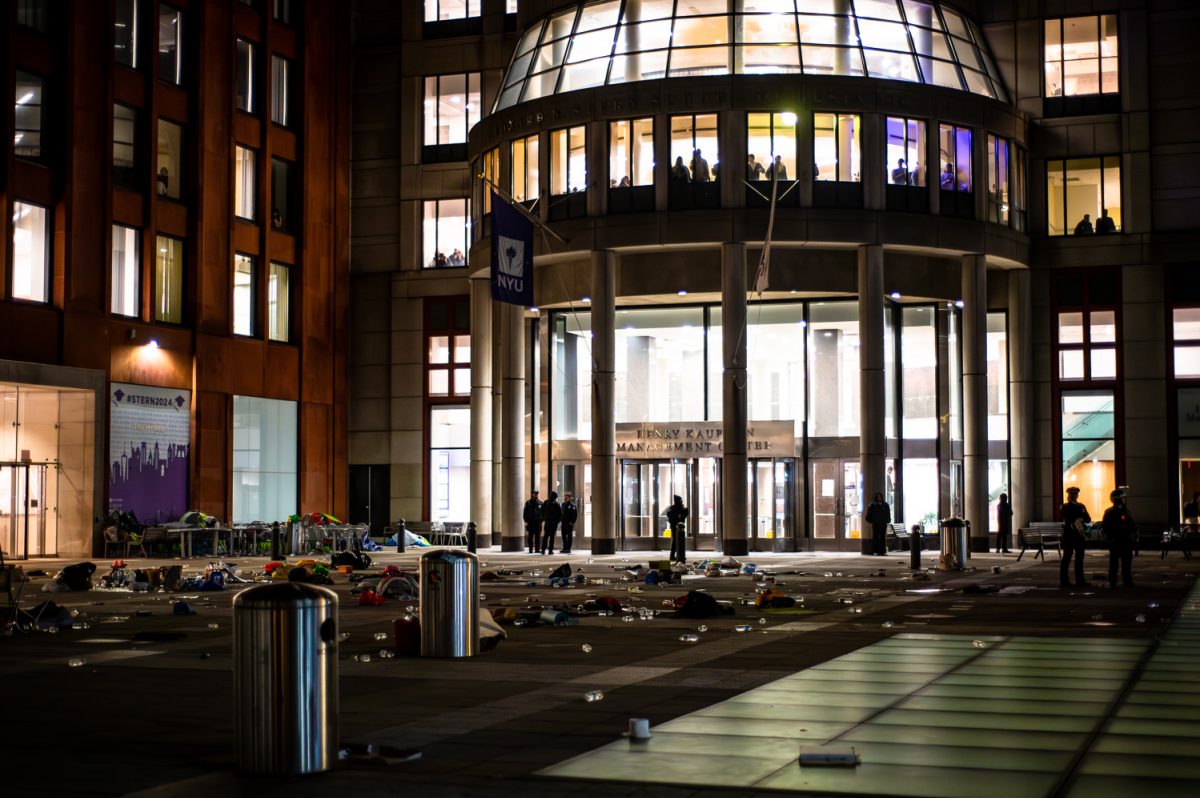NYU leadership sent an email to parents and guardians on Wednesday afternoon concerning the Gaza Solidarity Encampment in Gould Plaza on Monday, where the New York City Police Department arrested 120 student and faculty protesters.
In the letter, President Linda Mills, Dean of Students Rafael Rodriguez and Campus Safety head Fountain Walker wrote that since the end of the encampment “things are quiet on campus” and the university plans to be “very attentive to the prospect of new developments.”
The administrators added that “classes have been proceeding as normal” since Monday, after the encampment had “disrupted a number of Stern classes” and resulted in “multiple complaints and requests to move classes online,” according to a previous statement from NYU spokesperson John Beckman.
“While academic freedom and the free exchange of ideas are and always will be bedrock principles on NYU’s campus, hate, disruption and intimidation can never be countenanced,” the email read. “We do not believe that the opportunity to express oneself is incompatible with our longstanding rules governing conduct, which include when, where and how demonstrations can unfold on our campus, as well as rules about safety, security and the right for every student to live and learn in peace.”
The letter also referenced a pro-Palestinian demonstration that occurred a day after the encampment, where hundreds of protesters gathered in Washington Square Park to condemn the university’s involvement of the NYPD as well as Mills’ universitywide statement to the NYU community. The letter referred to the Tuesday demonstration as “typical.”
The email reiterated NYU’s previous reports of “intimidating chants and of antisemitic incidents,” a claim that was challenged in a recent statement by the university’s chapter of the American Association of University Professors. It also reaffirmed that NYU “asked for assistance” from the NYPD due to “safety issues raised by the breach” of barriers outside the plaza, which the administrators said violated Campus Safety and university protocol.
“It’s common for the university to communicate to parents when there has been a prominent event on campus or in the city that might have drawn their notice,” Beckman wrote to WSN.
Contact Bruna Horvath at [email protected].


























































































































































